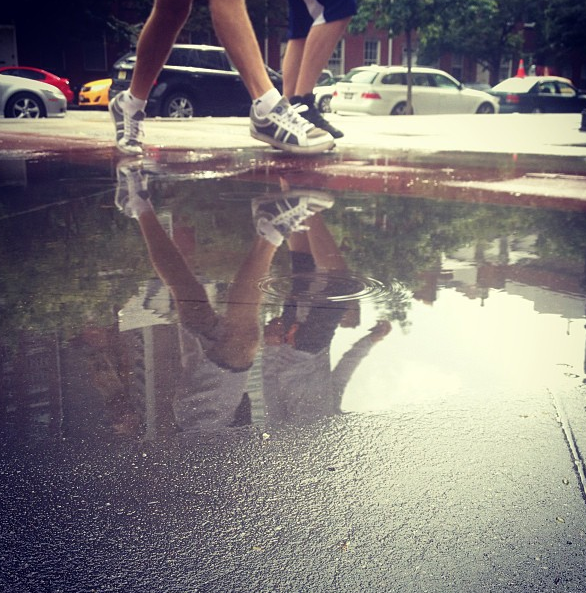

“You will continually pour rain on your own parade.” Eric Maisel’s philosophy on clinical depression is fascinating. Reminds me of a few people I used to know. Serious issues with depression. But I guess I never really understood their experience. I’ve certainly been disappointed, unhappy and sad before. Even had a few anxiety attacks over the years. But I never classified it as depression. My perspective was always mindset based. How is meaning supposed to arrise if I’ve already decided that life is always out there, waiting to hand me an ass
whipping? With a persistent negative evaluation of everything, how am I to find personal fulfillment and joy? Then, my solution was always action based. What physical action can I take, right now, that will flood me with meaning and joy and overwhelm this crappy mood? So far, it seems to be working.
“Poised in a great ballet of expectation.” The smartest choice I made in my yoga practice was to stop counting. No more looking at the clock. No more head games trying to figure out how much time is left in class. And no more counting how many days in a row I’ve practiced. All that quantifying did was create an unnecessary expectation, which started to affect the outcome. This is my tenth class in a row, surely my calf muscles should start cramping up soon, I’d think. And then they would. And it would hurt like hell. All because numbers affected my expectations. Inspired by a novel aboutsexual soul transmigration.
“You can’t do comedy without an audience.” Famous last words from George Carlin. And yet, I never realized how right he was until I started busking in the park. Turns out, the physical act of performing music for people changes the biology of the songs. Notes, riffs, rhythms and lyrics––that didn’t work when it was just me in my bedroom––magically made sense in front of a crowd. It’s the strangest thing. No wonder I can’t wait to get back to the tunnel every week.
“The name of the game is creativity, not
technology.” Killer insights from the original mad men. Got me thinking about insanely creative people, and how they got that way. It’s simple. First, heredity. Their genetic package had a predisposition to critical and artistic thinking. Second, environment. Their family, friends, teachers, mentors and early childhood support system encouraged, practiced and rewarded creative activity. Third, reps. Their formative years were spent honing a craft, practicing a skill and training the brain. But they never stopped. Practice didn’t end after the ten thousandth hour. Fourth, lifelong learning. They dedicated themselves to studying, respecting and improving the creative process. Fifth, commitment. Not just discipline. Not just hard work. But actual devotion to being a creative person. And sixth, drugs. Lots of drugs.
“No one who is good at building houses has an emotional problem with hammers.” Looking back to my entrepreneur days, I could have saved myself a ton of time and a mountain of anxiety if I just dealt with my money issues early on. I should have treated money as a tool to build with instead of a wall to blast through. But having come from wealth, the story I told myself was that money wasn’t important. That it was better to be heard than paid. Noble, perhaps, but not the smartest way to run a business. Thanks for the nudge, Seth.
